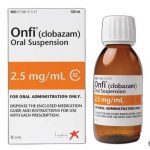
Contents
Do I Need Extra Vitamins if I Take A Multivitamin?
Most people should get all of their vitamins and minerals from their diet. Take extra vitamins if you do not meet the RDA of each vitamin and mineral you need daily.
The supplement industry is booming in the U.S. People spend over 12 billion dollars a year on multivitamins and supplements. With many options available, you may wonder: Which vitamins should I take daily, and which multivitamin is right for me?
Not everyone needs the same things from their multivitamin. One supplement may not meet all of your vitamin and mineral needs. It depends on the vitamins you currently get from your diet.
If you’re concerned that you’re missing certain nutrients, check the foods you eat each week. By paying attention to the ingredients, you can calculate the amounts of each vitamin and mineral you regularly get from your diet.
Otherwise, talk to your doctor or a dietitian to see if any supplements are right for you. In general, people are more likely to need supplements if they:
- Eat few calories
- Are older
- Have undergone bariatric surgery
- Abuse drugs, including alcohol
- Don’t eat enough fruits and vegetables
What should you consider when choosing a multivitamin?
It can be hard to find the right multivitamin for you. Keep in mind that the U.S. Food and Drug Administration (FDA) doesn’t regulate supplements, so you need to find a brand you trust. Ask your doctor for recommendations.
Ideally, find a multivitamin that only has the ingredients you’re lacking and not too many extras. You may even want to take a few individual supplements if you’re only lacking one or two things from your diet.
Also, make sure you’re not taking anything with megadoses. Too much of certain vitamins can be toxic for your body.
What vitamins and minerals should you get daily?
In general, make sure you’re getting all 13 essential vitamins, including vitamins A, C, D, E, K, and the eight different B vitamins. Also, make sure to get the recommended daily allowance (RDA) for each of these, as well as essential minerals. Otherwise, you could develop a deficiency, which can lead to health problems.
Vitamin A. Dietary sources include dairy products and orange-colored fruits and vegetables like carrots and mangoes. It boosts your immune system, maintains vision, strengthens bones, and supports organ function.
Vitamin B6. Natural sources include fish, starches, and certain fruits. It helps maintain brain functions, metabolize carbohydrates, proteins, and fats, and produce blood cells.
Folic acid. This B vitamin is important for young females and pregnant women. It helps with fetal development and prevents neural tube defects.
Vitamin C. Found in many fruits and vegetables, it has antioxidant properties that protect cells and promote overall health.
Vitamin D. Sources include sunlight, fish oil, fortified milk, and fortified cereals. It supports the immune and nervous systems and helps maintain calcium and phosphorus levels.
Vitamin E. Found in spinach, nuts, and whole grains, it has antioxidant properties and may reduce the risk of blood clots, certain cancers, and Alzheimer’s disease.
Vitamin K. Found in leafy greens, it improves bone health and helps with blood clotting.
Calcium. Necessary for muscle function and bone strength, it can prevent osteoporosis.
Iron. Found in red meat and leafy vegetables, it supports the immune system and helps prevent fatigue.
Zinc. Found in red meat, poultry, beans, and nuts, it benefits the immune system and may reduce the risk of cancer and the common cold.
QUESTION
How much of each vitamin do you need?
Your RDA is the quantity of each vitamin and mineral you need daily. The exact amount varies depending on factors like your age and sex.
A nutrient’s RDA is typically given in milligrams or micrograms. 1,000 micrograms equal one milligram.
The RDAs for the vitamins and minerals discussed above are as follows:
- Vitamin A. Adult males need 900 micrograms daily, and adult females need 700 micrograms. Pregnant or breastfeeding women need more.
- Vitamin B6. Adult males and females both need 1.3 milligrams daily.
- Vitamin C. Adult females should get 75 milligrams daily, and adult males need 90 milligrams.
- Vitamin D. All adults between 19 and 70 years old need 15 micrograms daily.
- Vitamin E. Everyone over 14 years old should get about 15 milligrams daily.
- Vitamin K. Adult females need 90 micrograms daily, and adult males need 120 micrograms.
- Calcium. Adults between 19 and 51 need about 1,000 milligrams daily. Females over 51 and males over 70 should increase their intake to about 1,200 milligrams.
- Iron. Adult males and females need between eight and 18 milligrams daily. The exact amount varies.
- Zinc. Adult males need 11 milligrams daily, and adult females need about 8 milligrams.
Sources:
Aspen Valley Hospital: "What Vitamins Should I Take Daily?"
Better Health Channel: "Vitamin and mineral supplements – what to know."
Cleveland Clinic: "9 Vitamins and Minerals You Should Take Daily."
Johns Hopkins Medicine: "Is There Really Any Benefit to Multivitamins?"
National Institute on Aging: "Vitamins and Minerals for Older Adults."
UT Southwestern Medical Center: "5 signs you’ve chosen the right multivitamin."


